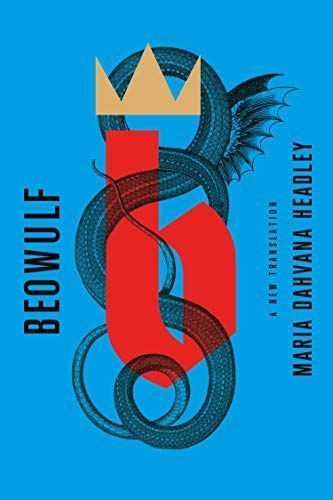
Beowulf A New Translation
A new, feminist translation of Beowulf by the author of the much-buzzed-about novel The Mere Wife Nearly twenty years after Seamus Heaney’s translation of Beowulf—and fifty years after the translation that continues to torment high-school students around the world—there is a radical new verse translation of the epic poem by Maria Dahvana Headley, which brings to light elements that have never before been translated into English, recontextualizing the binary narrative of monsters and heroes into a tale in which the two categories often entwine, justice is rarely served, and dragons live among us. A man seeks to prove himself as a hero. A monster seeks silence in his territory. A warrior seeks to avenge her murdered son. A dragon ends it all. The familiar elements of the epic poem are seen with a novelist’s eye toward gender, genre, and history—Beowulf has always been a tale of entitlement and encroachment, powerful men seeking to become more powerful, and one woman seeking justice for her child, but this version brings new context to an old story. While crafting her contemporary adaptation of Beowulf, Headley unearthed significant shifts lost over centuries of translation.
Reviews
lala@polijus
Luke Toop@ltoop
Ryan LaFerney@ryantlaferney
Fraser Simons@frasersimons
Sunyi Dean@sunyidean
Emily Perkovich@undermeyou
Jeremy Anderberg@jeremyanderberg
Daryl Houston@dllh
Ben Nathan@benreadssff
lauren@chauren
Adam@looptem
Tija@itstija
désirée@desireereads
Emily@emilydreadful
kate@katelucia
Cheyenne Corty@bibliophage_teamage
Sang Park@sparky
Connie@cludecoeur
Laura@lauraciriza
nico alexander@ghostlyghost
Gabriel Noel @peachpit_gabe
Mathias Ball@pelicanofthedesert
Deanna Kendall@deereads
Rachel Rozdzial@razzledazzle